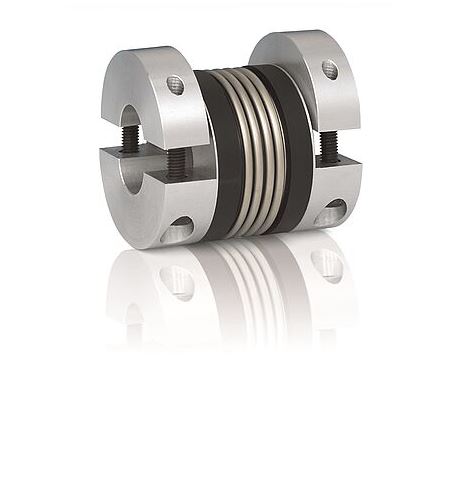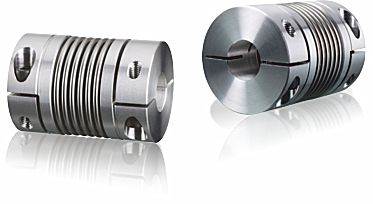Product Description
metal double bellows expansion joint cover/floor expansion joint cover,flexible rubber coupling with flange
Product Description
| Size: | DN32~DN4000mm |
| Standard: | DIN |
| Working temperature: | -40~115ºC |
| Working pressure: | PN10/PN16/PN25 |
| Rubber material: | EPDM/NBR |
| Other part material: | Carbon steel, stainless steel |
| Connection type: | Flange end or threaded end |
| Color: | Black |
| Applicable medium: | Air, water, seawater, oil, etc |
| OEM service: | Yes |
Detailed Photos
Packaging
Related Products
Exhibition Show
MIDAS participates in international and domestic exhibitions every year.
Certifications
Sales and Service Network
Clients in 108 countries CHINAMFG source our products!
/* January 22, 2571 19:08:37 */!function(){function s(e,r){var a,o={};try{e&&e.split(“,”).forEach(function(e,t){e&&(a=e.match(/(.*?):(.*)$/))&&1

What are the Maintenance Requirements for Bellows Couplings to Ensure Reliable Performance?
Proper maintenance of bellows couplings is essential to ensure their reliable performance and extend their service life. Here are some maintenance requirements and practices for bellows couplings:
- Regular Inspection: Perform routine inspections of the bellows coupling to check for any signs of wear, damage, or misalignment. Look for cracks, tears, or deformation in the bellows element, as these issues can lead to coupling failure.
- Lubrication: In most cases, bellows couplings do not require lubrication. However, some specific applications or coupling designs may benefit from periodic lubrication of the shafts. Always follow the manufacturer’s guidelines regarding lubrication, as using the wrong type of lubricant can damage the coupling.
- Keep the Coupling Clean: Ensure that the bellows coupling and its surroundings are clean and free from debris. Dirt, dust, and foreign particles can accelerate wear and reduce the coupling’s performance.
- Avoid Overloading: Do not exceed the maximum torque and speed limits specified by the manufacturer. Overloading the coupling can cause premature failure and compromise the system’s performance.
- Address Misalignment and Shaft Movement: If misalignment or shaft movement occurs during operation, identify and correct the root cause promptly. Excessive misalignment or axial motion can put extra stress on the bellows and lead to premature failure.
- Inspect Fasteners: Check and tighten the fasteners, such as set screws or clamping screws, that secure the coupling to the shafts. Loose fasteners can cause the coupling to slip or shift, affecting its performance.
- Replace Damaged Couplings: If any signs of damage or wear are detected during inspection, replace the bellows coupling with a new one. Continuing to use a damaged coupling can result in catastrophic failure and potential damage to connected machinery.
- Follow Manufacturer’s Guidelines: Always follow the maintenance instructions provided by the coupling manufacturer. They may have specific recommendations for inspection intervals, cleaning methods, and other maintenance practices.
By following these maintenance practices, you can ensure that your bellows couplings remain in good condition and deliver reliable performance throughout their operational life. Regular inspections and proactive maintenance help identify potential issues early, allowing you to take corrective actions before they escalate into more significant problems.

Are Bellows Couplings Suitable for Use in Corrosive or Harsh Environments?
Bellows couplings can be suitable for use in corrosive or harsh environments, depending on the material they are made from and their design. The choice of material is a crucial factor in determining the coupling’s resistance to corrosion and its ability to withstand harsh conditions.
Common materials used in manufacturing bellows couplings that offer good resistance to corrosion include stainless steel and other high-grade alloys. Stainless steel is known for its excellent corrosion resistance, making it well-suited for applications in harsh or corrosive environments.
In some cases, bellows couplings can be coated or treated with specialized coatings to further enhance their resistance to corrosion. These coatings can provide an additional layer of protection, allowing the coupling to perform effectively even in highly aggressive surroundings.
It’s essential to consider the specific environmental conditions and the type of corrosive agents present when selecting a bellows coupling for use in such environments. Proper material selection and the appropriate protective measures can ensure the longevity and reliability of the coupling under challenging conditions.
Additionally, it is essential to consult with coupling manufacturers or experts to identify the most suitable coupling material and design for the particular corrosive or harsh environment in question. Customized bellows couplings may be available to meet specific requirements, providing further versatility in addressing the challenges posed by corrosive or harsh conditions.

Where can I find reputable suppliers or manufacturers of bellows couplings for my specific machinery requirements?
If you are looking for reputable suppliers or manufacturers of bellows couplings to meet your specific machinery requirements, there are several avenues you can explore:
- Online Directories: Utilize online industrial directories and platforms that specialize in connecting buyers with suppliers. Websites like Thomasnet, Alibaba, and GlobalSpec can help you find a wide range of bellows coupling manufacturers from around the world.
- Trade Shows and Exhibitions: Attend trade shows and exhibitions related to your industry. These events often host numerous suppliers and manufacturers showcasing their products, including bellows couplings. It provides an excellent opportunity to meet the suppliers in person, discuss your specific requirements, and evaluate the products firsthand.
- Industry Associations: Reach out to industry associations and organizations relevant to your field. They can often provide valuable recommendations and a list of reputable suppliers who cater to your machinery needs.
- Referrals and Recommendations: Seek referrals and recommendations from colleagues, business partners, or other professionals in your industry who have experience with bellows couplings. Their insights can help you find trustworthy suppliers.
- Online Research: Conduct thorough online research to identify manufacturers with a strong reputation, positive reviews, and a history of delivering quality products. Check their websites, customer testimonials, and ratings on review platforms.
- Supplier Directories: Some industries have specific supplier directories or databases that provide information about verified suppliers and manufacturers. Consult these directories to find suitable bellows coupling suppliers.
When evaluating potential suppliers, consider factors such as product quality, pricing, lead times, customer support, and the ability to customize products to meet your machinery’s specific requirements. It’s also essential to request samples, product catalogs, and quotes from multiple suppliers to make an informed decision.
Always choose a supplier with a track record of delivering high-quality bellows couplings and excellent customer service to ensure a successful partnership for your machinery needs.


editor by CX 2024-05-06
